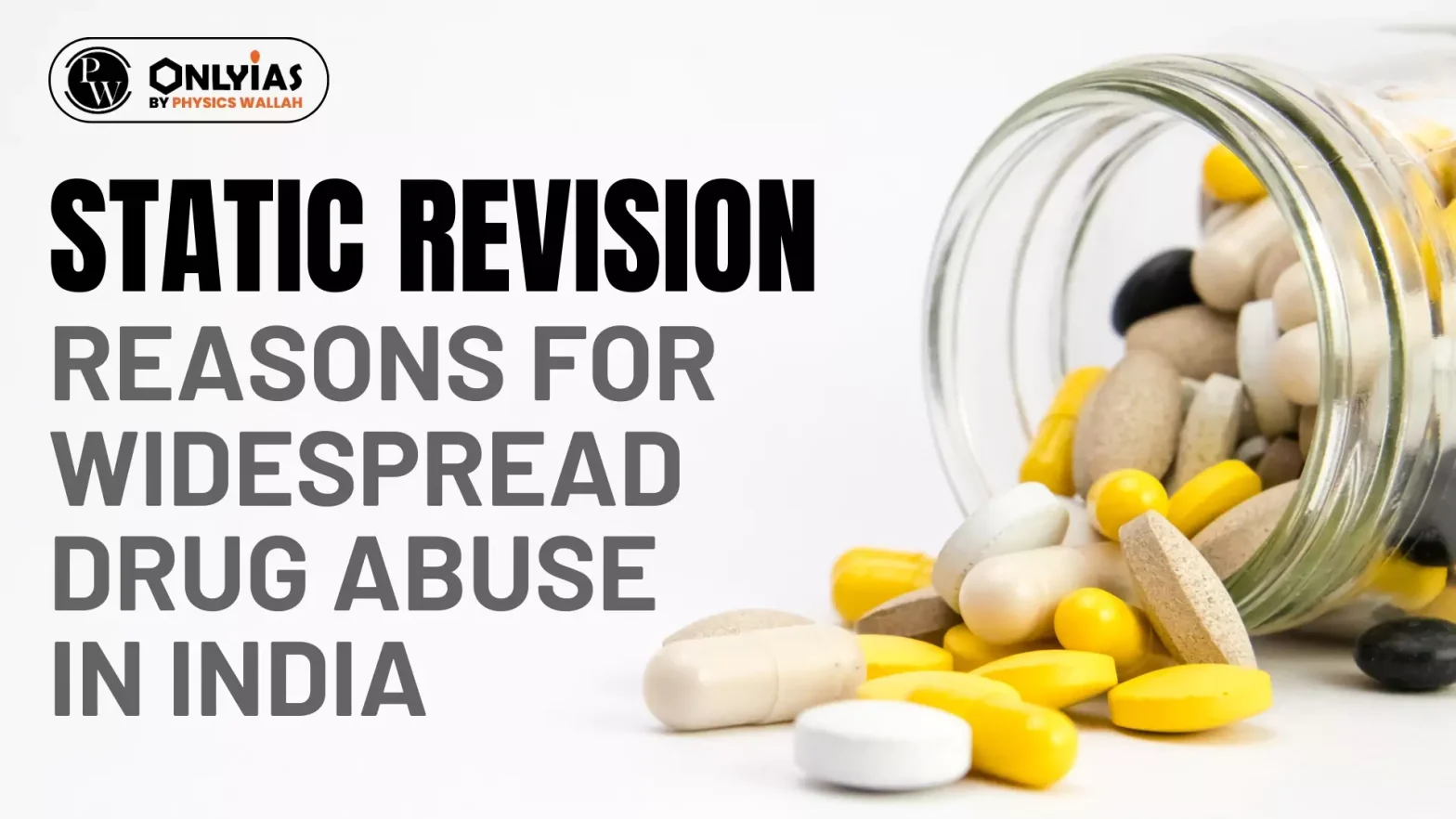Drug abuse refers to the excessive or inappropriate use of drugs, leading to numerous harmful consequences. The prevalence of drug abuse is rising in India, with several contributing factors:
Reasons for Widespread Drug Abuse in India
- Social Factors: The disintegration of joint families and declining moral values have led many individuals to pursue pleasure as the ultimate goal in life.
- Peer Pressure: Individuals, particularly in educational institutions, often feel influenced by their peers who engage in drug use, perceiving it as a cool and status-enhancing behaviour.
- Economic Prosperity: Increased disposable income in regions like Punjab and Maharashtra has contributed to higher rates of drug abuse.
- Proximity to Golden Crescent and Golden Triangle: Regions where drug production is prevalent make drugs more readily available.
Enroll now for UPSC Online Classes
Government Initiatives Against Drug Abuse in India
- Legal Framework: The Narcotic Drugs and Psychotropic Substances Act, 1985, and the Prevention of Illicit Traffic Act, 1988, provide the legal foundation for combating drug abuse.
- International Conventions: India is a signatory to three United Nations drug conventions, demonstrating its commitment to addressing drug-related issues on a global scale.
- Enforcement Agencies: The Narcotics Control Bureau and other agencies work to combat drug trafficking effectively.
- National Action Plan: This plan focuses on raising awareness, promoting community outreach, and providing treatment for affected individuals.
- Awareness Programs: Initiatives like the Nasha Mukt Bharat campaign and the integration of drug education into curricula aim to inform and educate the public.
- Technological Intervention: The launch of portals like the NCORD portal and the e-portal SIMS enables the digitization of drug seizure data and the adoption of modern technology for detection and prevention.
Way Forward
- Policy Focus: Informed policy-making should be based on periodic surveys to understand the evolving nature of drug abuse.
- Legal Reforms: Creating a conducive legal environment is essential, ensuring that cases are resolved in a timely manner.
- Community Involvement: Engaging NGOs and citizens, including the elderly, in awareness and rehabilitation efforts can enhance community support.
- Reducing Stigma: Viewing drug addiction as a health issue rather than a moral failing is crucial, as many individuals may feel trapped by their circumstances.
- Enhanced Treatment Facilities: Scaling up evidence-based treatment services will ensure that affected individuals receive the necessary care and support.
Check Out UPSC NCERT Textbooks From PW Store
![]() 26 Sep 2024
26 Sep 2024

